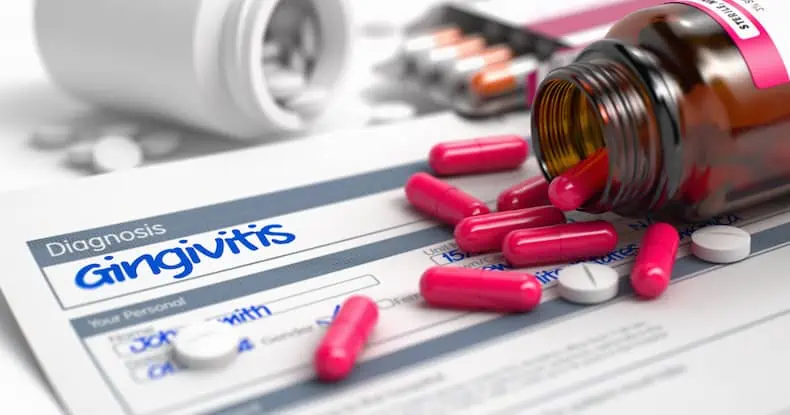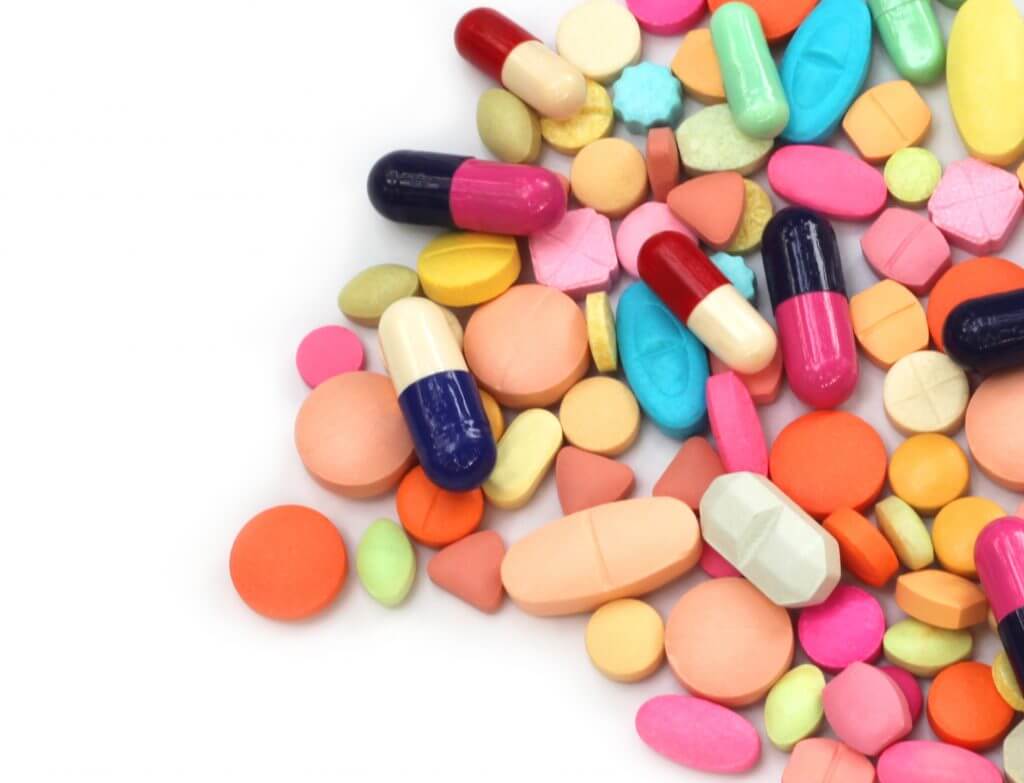Are dental antibiotics for tooth infection always needed? Not necessarily. There are multiple ways to treat oral health problems without antibiotics, including root canals and fillings or tooth extraction.
In some cases, however, antibiotics can save lives. But the key is to only take them when you need them and always follow your healthcare provider’s exact instructions.
Keep reading to find out more about:
- Who can and can’t take certain antibiotics
- Usual antibiotics dosages
- When you need antibiotics (and when you don’t)
- How to stop antibiotic resistance
In This Article
- 1 Common dental antibiotics
- 2 What antibiotics are used for tooth infection?
- 3 What is the best antibiotic for gum infection?
- 4 What is the best antibiotic for a toothache?
- 5 Will I need antibiotics after oral surgery?
- 6 Antibiotic prophylaxis for dental work
- 7 Antibiotics for children
- 8 Dental antibiotic dosage
- 9 Antibiotic resistance
- 10 Conclusion
- 11 FAQs
Common dental antibiotics
There are a number of antibiotics used in dentistry to fight infection, and the type you need will depend on the bacteria that is causing your infection. The most common antibiotics used by dentists for tooth infections are from the Penicillin family, including penicillin and amoxicillin.

Other dental antibiotics include metronidazole, Clindamycin, azithromycin, and erythromycin. These are not as common in dentistry for fighting bacterial infections as penicillin or amoxicillin; however, they may be used if the patient is allergic to antibiotics from the penicillin class.
What antibiotics are used for tooth infection?
Common antibiotics used for tooth infection treatment include penicillin, amoxicillin, metronidazole, Clindamycin, and azithromycin. Now let’s take a closer look.
Penicillin and amoxicillin
Penicillin refers to a class of antibiotics that includes penicillin and amoxicillin. According to the Mayo Clinic, the typical dosage for adults and children who weigh more than 88 pounds is 250–500 mg every eight hours, or 500–875 mg every 12 hours.
The amount and frequency will depend on the type of infection you have and its location.
While antibiotics from the penicillin class are the most popular dental infection antibiotics, some people may have allergies. In this case, your dentist will need to prescribe another type of antibiotic.
Another problem with drugs from the penicillin class is that they may not always be effective due to overuse, causing bacteria to become resistant.
In some cases, to aid the effectiveness of amoxicillin, doctors will prescribe clavulanic acid as well because it helps prevent bacteria from destroying the amoxicillin.
If you are taking amoxicillin, we have a guide addressing how long it takes for amoxicillin to work on a toothache, if you’d like to read more.
Metronidazole
This antibiotic is another one that doctors use to treat multiple types of infections. It isn’t suitable for all patients and isn’t usually the first choice, but it is sometimes prescribed to people who are allergic to penicillin.
Clindamycin
This is a common antibiotic also used in the treatment of multiple bacterial infections. It is growing in popularity for dental infections because it is more affordable than other options and is widely available. There is also less risk of bacterial resistance, as it isn’t used as frequently as penicillin.

Azithromycin
This drug works by stopping the growth of bacteria, including in recurring infections, and is sometimes prescribed to patients who are allergic to penicillin.
Erythromycin
Erythromycin is used to treat dental abscesses and is safe for children to take as well. It’s not the most popular option, but for some patients, it may be the best antibiotic for infected tooth treatment.
What is the best antibiotic for tooth infection treatment?
In many cases, antibiotics from the penicillin class, including penicillin and amoxicillin, are the best antibiotics for tooth infection. But that doesn’t mean these are the right choices for everyone! In fact, antibiotics may not be what you need even If you have a tooth infection.
You should never take an antibiotic without a prescription from your dentist or doctor. Many people take antibiotics without a prescription, and this is leading to antibiotic resistance in bacteria.
That means that some bacterial infections can no longer be treated with antibiotics… which is a scary thought!
Instead of antibiotics, your dentist may decide that the best course of action is to drain your abscess, perform a root canal, or possibly remove the infected tooth.
That being said, you are more likely to receive antibiotics for a tooth infection when your infection is severe and spreading or if you are an individual with a weakened immune system.
The best antibiotic for a tooth infection will depend on the type of bacteria that is causing your infection and the location of your infection. That’s because different classes of antibiotics work in different ways to fight bacteria.
This is one of the reasons why it’s essential to take the antibiotic exactly as prescribed by your dentist until you’ve finished your prescribed course of treatment. Your dentist or doctor will know which is the best drug to take for your infection based on your medical history and the type of infection.
How long does it take for antibiotics to work for a tooth infection?
You can start feeling the effects of antibiotics on a tooth infection in as little as a day. But just because your pain and swelling have gone away doesn’t mean your infection is entirely cured!
Your antibiotics won’t completely take care of the infection until you’ve taken them over a course of 7 to 10 days, and always for the complete amount of time your dentist has prescribed.
It’s extremely important that you take all of the antibiotics that your dentist has prescribed, exactly as prescribed. If not, you could just make bacteria resistant to the antibiotics and make your infection ultimately more difficult to treat.
How to get antibiotics for a tooth infection
You can get antibiotics for a tooth infection from your dentist or doctor, although dentists are preferable due to their experience with tooth infections. Antibiotics are not available over the counter; you must have a doctor’s prescription.
If you have antibiotics leftover in your medicine cabinet from an old infection, you should not use them. To properly dispose of your antibiotics, take them to your nearest pharmacy.
Can you get antibiotics for a tooth infection online?
Depending on your condition, you may be able to get dental antibiotic prescriptions through an online dental consultation.
One company that offers this service is Denteractive. You can connect to a board-certified dentist via chat or video call, and they will be able to prescribe you antibiotics for a tooth infection online, if this is deemed to be the best treatment for you.
Denteractive offers a free dentist chat service, but you will need to take a paid plan (starting at $14.99) if you wish to get a prescription for antibiotics or pain medication.

What is the best antibiotic for gum infection?

An untreated gum infection (periodontitis) can lead to problems such as adult tooth loss, soft tissue damage, and a weakening of your jaw bone. It may be treated with antibiotics like amoxicillin.
Erythromycin, tetracycline, or metronidazole are other options if the patient is allergic to penicillin.
What is the best antibiotic for a toothache?
A toothache caused by infection can be treated in various ways depending on the severity, location, and general health of the patient. In cases of severe infections that can’t be treated by root canal or tooth extraction alone, your dentist may prescribe an antibiotic—usually amoxicillin, or metronidazole in the case of a penicillin allergy.
Can you take doxycycline for a toothache?
Doxycycline is part of the tetracycline class of antibiotics. It isn’t typically a first-choice antibiotic; rather, it is reserved for more serious infections.
Therefore, doxycycline should only be taken for a toothache if that toothache is caused by a severe infection and your dentist has prescribed it to you.
Doxycycline can also be used to help prevent the breakdown of gum tissue and help with the reduction of gum pockets in patients who have gum disease. At that dosage, however, it won’t treat bacterial infections.
Doxycycline for a tooth infection is not recommended in children under 12 because antibiotics from the tetracycline class can cause permanent tooth staining in children. It’s also not suitable for pregnant women.
Will I need antibiotics after oral surgery?
Most people don’t need antibiotics after oral surgery. There are some cases when your dentist may recommend them—for example, if you have some heart conditions or cirrhosis of the liver.
A dentist may also prescribe antibiotics for individuals with a history of infective endocarditis or a weakened immune system.
Antibiotic prophylaxis for dental work
Your dentist may prescribe preventative antibiotics for certain dental services or before the treatment of your dental infection; this is called antibiotic prophylaxis.
During certain dental treatments, the bacteria that reside in your mouth may enter the bloodstream, and prophylactic antibiotics can prevent infection.
Who needs antibiotics before dental work?

Most patients don’t require antibiotics before dental work. Immune systems are more than capable of handling these bacteria, but there are some people who may need antibiotics after oral surgery. This may include those have had or have:
- Heart conditions, including congenital heart defects and disease
- An artificial heart valve
- A heart transplant
- Knee or hip replacement surgery
- Diabetes
- Cancer
- Infective endocarditis
Always make sure to share your full medical history with your doctor before surgery or dental work, even if you think it’s not relevant, so they know if they need to prescribe antibiotics before or after dental work.
Antibiotics for children
Antibiotics are safe for children’s dentistry as long as you follow your pediatric dentist’s instructions and administer your child’s antibiotics exactly as prescribed. Let’s have a look at some of the general guidelines as stated by the American Academy of Pediatric Dentistry.
Facial swelling with infection
For children with dental infections, antibiotics from the penicillin class are the most popular choice.
Your dentist may decide that additional supplemental antibiotics such as metronidazole may be needed if the infection is caused by anaerobic bacteria—bacteria that don’t require oxygen and are most commonly found in the gastrointestinal tract.
Dental trauma and infection
If your older child’s teeth become dislodged due to trauma, the dentist may prescribe tetracycline.
However, tetracycline can cause permanent tooth discoloring when a child’s dentin is still being formed, also called tetracycline teeth, so children under 12 will be prescribed something else in most cases, like penicillin V or amoxicillin. Topical antibiotics may also be used to help with gum healing.
Periodontal disease
Children with aggressive periodontal disease may be prescribed antibiotics as a supplement to localized treatments.
Dental antibiotic dosage
Take the dosage that your doctor prescribes at the intervals prescribed. You can see some of the common dosages for antibiotics for some different oral health conditions and infections in the tables below. However, these are only for reference and should not replace your doctor’s instructions.
Tooth infection antibiotics dosage
Drug name | Dosage for adults |
Amoxicillin | 500 mg every 8 hours or 1,000 mg every 12 hours |
Clindamycin | 300 mg or 600 mg every 8 hours |
Azithromycin | 500 mg every 24 hours for 3 consecutive days |
Metronidazole | 500–750 mg every 8 hours |
Tooth abscess antibiotics dosage
A dental abscess won’t go away on its own, so it’s crucial to seek professional help if you think you may have one. Your dentist may prescribe an antibiotic for tooth abscess treatment if the infection has spread to nearby teeth, your jaw, or other areas.
Drug | Dosage for adults |
Ampicillin-sulbactam | 3 g IV every 6 hours |
Amoxicillin-clavulanate | 875 mg orally every 12 hours |
Penicillin G | 2 to 4 g IV every 4 to 6 hours |
Cefoxitin | 1 to 2 g IV |
Clindamycin | 300 or 600 mg IV or orally every 6 to 8 hours |
Piperacillin-tazobactam | 4.5 g IV every 6 hours |
Dosage for gum infection
Drug name | Dosage for adults |
Metronidazole | 500–750 mg every 8 hours |
Amoxicillin | 500 mg every 8 hours or 1,000 mg every 12 hours |
Antibiotic resistance
Bacteria can develop resistance to antibiotics, resulting in ineffective treatment. This is a growing problem with the ongoing usage of antibiotics and because antibiotics are too often overprescribed.
The most common antibiotics prescribed by dentists are amoxicillin, penicillin, and metronidazole, and these are the ones with the most potential for bacterial resistance.
When bacteria become drug-resistant, infections are even harder to treat.
How to prevent antibiotic resistance
Some dentists (not all) frequently prescribe antibiotics to their patients, even for diseases that can’t be treated with antibiotics.
To stop the spread of drug-resistant bacterial strains, dentists should only prescribe antibiotics to control known local infections, and not just when some inflammation is visible. Additionally, prophylactic use should be limited and only in cases when there are infections.
Patients also have a role to play to stop antibiotic resistance. A couple of things patients should do include:
- Ask questions: Ask your dentist or doctor about the antibiotics they are giving you and why you need it for your treatment.
- Don’t demand antibiotics: Never demand antibiotics from your doctor if they say they aren’t necessary.
- Don’t use old antibiotics: Don’t share or use old or leftover antibiotics; only take them when prescribed by your doctor.
In the video below, Dr. Tamisha Denis talks all about the dental antibiotics for tooth infection and in dentistry, including when they should be prescribed, and when they shouldn’t.
Conclusion
Antibiotics have saved and will save many lives that could have been lost to infection, including in the world of dentistry. Your dentist may prescribe antibiotics if you have a severe dental infection that can’t be treated through other methods like a root canal or extraction.
Antibiotics are safe to use in children as well, as long as the recommended dosage is followed. Although in children under 12, tetracyclines aren’t recommended, as they can cause permanent tooth discoloring.
To help prevent antibiotic resistance and ensure that antibiotics can continue to save lives for many generations to come, only use antibiotics prescribed by your dentist and make sure you finish the entire course of treatment, even if you feel better before your antibiotics run out.
If you think you need dental antibiotics but you can’t get to a dentist right now, you can use Denteractive’s online dentist service. After doing an virtual consult, your dentist can prescribe antibiotics for tooth infection online, if needed.

FAQs
How much Clindamycin should I take for a tooth infection?
You should take the dosage prescribed by your dentist. If you are prescribed a typical dose for Clindamycin—300 mg for tooth infection—this is normal. If you have concerns, talk to your dentist.
How long does it take for amoxicillin to work for a tooth infection?
If you take the amoxicillin antibiotic for tooth infection, you may begin to feel better in just one to two days. However, that doesn’t mean that your infection is cured.
You must make sure to take your antibiotics for as many days as specified in your prescription, and even though you may feel better in a couple of days, your infection probably won’t be gone until a week to 10 days have passed.
What is the best antibiotic for abscess tooth treatment?
The best antibiotic for dental abscess is the one your dentist prescribes for you. It’s also likely one from the penicillin class, including penicillin and amoxicillin. Patients who are allergic to penicillin may be prescribed metronidazole instead for tooth abscess antibiotic treatment.
International Dental Journal: Antibiotics in dental practice: How justified are we? Consulted 18th November 2020.
Aapd.org: Use of antibiotic therapy for pediatric dental patients. Consulted 18th November 2020.
Mpdi.com: Dental infection and resistance—global health consequences. Consulted 18th November 2020.
Nfid.org: How to prevent antibiotic resistance. Consulted 18th November 2020.
Mayoclinic.org: Penicillin (oral route, injection route, intravenous route, intramuscular route). Consulted 18th November 2020.




